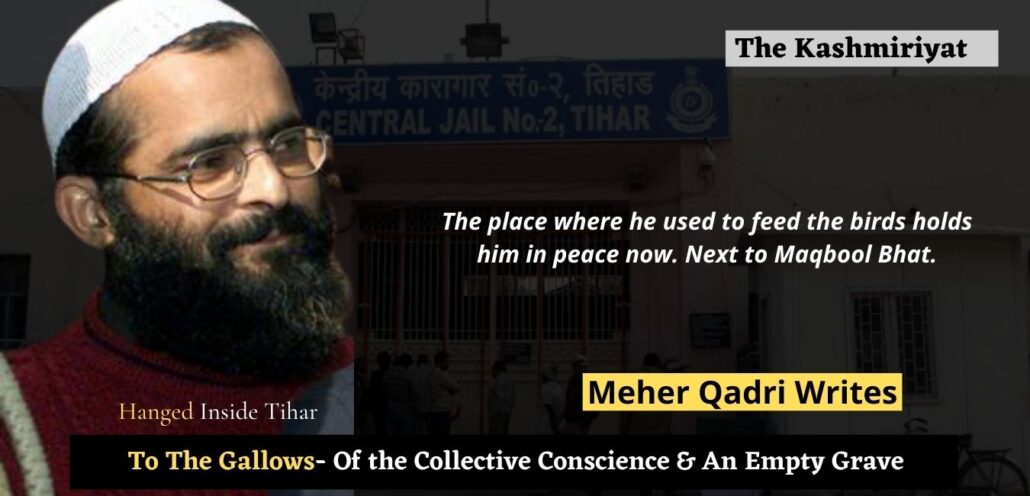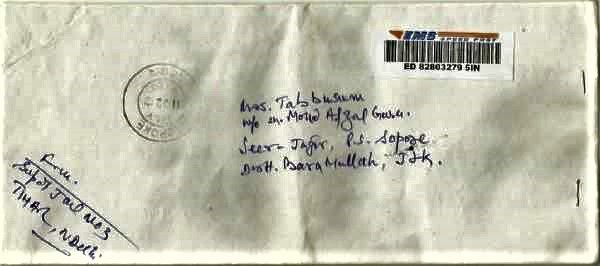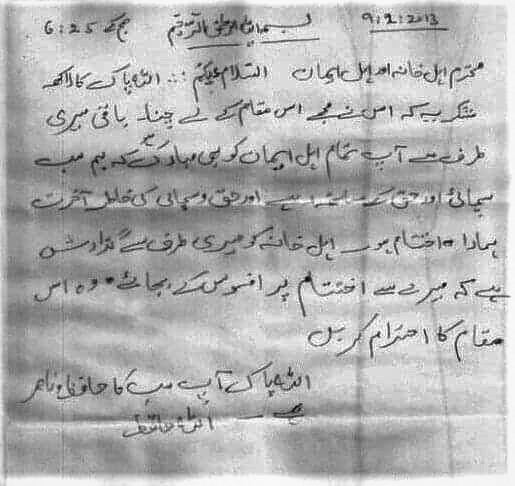
Meher Qadri
Kashmiris are a people in perpetual mourning (حداد دائم). Some days more than others. A land of saints, now a land of martyrs. Our meadows, now a witness of denied dignity even in death. Gagged mourning and the pleas for the return of the dead, an ‘act of terrorism’. Today on a cold February morning, Kashmir wakes up to one such memory of loss and grief, as it has been for the last 8 years.
The city, and other parts of the valley in unison, wore a shroud of remembrance, paid tributes at the ‘grave in waiting’ and observed hartal on the death anniversary of Mohammad Afzal Guru.
Deep-seated beliefs regarding spirituality and religion are explained partially due to the collective unconscious. Jung believed that the collective unconscious is expressed through universal concepts called archetypes. Archetypes can be signs, symbols, or patterns of thinking and behaving that we inherit. Of all the archetypes Jung considered the mother archetype to be the most important. He thought the archetype not only manifested in the literal form of personal mother, grandmother, stepmother but also in the figurative form of mothers, including A garden, a ploughed field, a spring or a well, a country, the church, the earth and the sea.
Jung was convinced that the similarity and universality of religions pointed to a manifestation of the collective unconscious. Similarly, morals, ethics, and concepts of fairness or right and wrong could be explained in the same way, with the collective unconscious as partially responsible. The common importance of the collective unconscious makes people ripe for political manipulation, especially in the era of mass politics. Jung compared mass movements to mass psychosis, comparable to demonic possession in which people uncritically channel unconscious symbolism through the social dynamic of the mob and the leader.
On the 9th of February in 2013, the collective UNCONSCIOUS of the country of 1.28 billion people were assured of their safety as the Supreme Court of India’s judgment of the death penalty was executed. A frail man walking to the gallows under a dark sky saying his last prayer, awfully aware that his family will wake up to the news of his secret execution. The last phone call to his wife, their shared sighs, and the unfinished promise of another call. How their lives will transform into an endless search for closure. His last letter to his wife that he wrote sums up the graceful acceptance of a man about to meet his maker. The prison guards tell tales of his silent but brave walk through those corridors. It is said that Afzal on reaching the end of the courtyard, stood still for a second to steal one last glance of late Maqbool Bhat’s grave on his left. Moments after that glance at 8:00 am, Mohammad Afzal Guru was hanged till death.
Afzal lies buried in one of the only two marked graves inside Tihar. The place where he used to feed the birds holds him in peace now. Next to none other than Maqbool.
One can only imagine the conversations.
Letter to his wife
On the 13th of December in 2001, five armed men drove through the gates of the Indian parliament in a car fitted with a bomb. When challenged they jumped out of the car and opened fire, killing eight security personnel and a gardener. In the firefight that followed, all five attackers were killed. Within 24 hours, the Delhi Police Special Cell claimed it had cracked the case. On the 15th of December, it arrested Professor SAR Geelani, in Delhi, Showkat Guru and his cousin Afzal Guru in Srinagar, Kashmir. Subsequently, they arrested Afshan Guru, Showkat’s wife.
The fast – track court sentenced Geelani, Afzal and Showkat Guru to death. Subsequently, the high court acquitted Geelani and Afshan Guru. The Supreme Court upheld the acquittal. But in a judgment that was passed on the 5th of August in 2005, Afzal Guru was given three life sentences and a double death sentence. On February 9th in 2013, Afzal Guru was hanged. Guru was buried inside Tihar Jail. The government was aware of the tension the news would cause in the region. Aware of the sentiments the execution will invoke in Kashmir Internet and mobile services were blocked. The government did not want a large-scale agitation at their hands in the “making of another martyr”.
Every year on this day since that fateful morning the nation that quietly gave its consent to preserve its sense of nationalism and executed a man with a celebration, wakes up to questions of depraved morality, denied justice and the sheer silence of its conscience. Tagore the creator of the National anthem of India, once wrote in an essay about Nationalism – “Clever lies become matters of self-congratulation. Solemn pledges become a farce—laughable for their very solemnity. The nation, with all its paraphernalia of power and prosperity, its flags and pious hymns, its blasphemous prayers in the churches, and the literary mock thunders of its patriotic bragging, cannot hide the fact that the nation is the greatest evil for the nation, that all its precautions are against it, and any new birth of its fellow in the world is always followed in its mind by the dread of a new peril”.
Dostoevsky in The Idiot writes “ To kill for murder is a punishment incomparably worse than the crime itself. Murder by legal sentence is immeasurably more terrible than murder by brigands. Anyone murdered by brigands, whose throat is cut at night in a wood, or something of that sort, must surely hope to escape till the very last minute. There have been instances when a man has still hoped for escape, running or begging for mercy after his throat was cut. But in the other case all that last hope, which makes dying ten times as easy, is taken away for certain. There is the sentence, and the whole awful torture lies in the fact that there is certainly no escape, and there is no torture in the world more terrible”. яндекс
To justify the killing of a man one must have killed the man inside first.
The last sun of the century sets amidst the blood-red clouds of the West and the whirlwind of hatred.
The naked passion of the self-love of Nations, in its drunken delirium of greed, is dancing to the clash of steel and howling verses of vengeance.
The hungry self of the nation shall burst in the violence of fury from its shameless feeding.
For it has made the world its food.
And licking it, crunching it and swallowing it in big morsels,
It swells and swells,
Till in the midst of its unholy feast descends the sudden shaft of heaven piercing its heart of grossness.
“The Sunset of the Century” – (1899)






